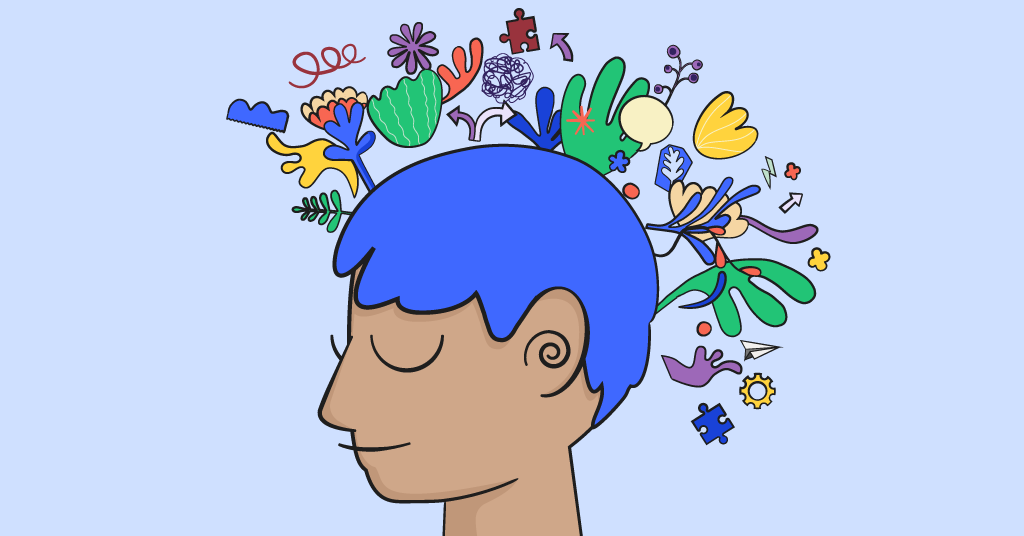
As parents, we all want our children to be happy, healthy, and safe. However, when it comes to discussing mental wellness, it can be tough to start the conversation and foster a safe, non-judgmental space.
But as teens face more and more challenges to their mental health —from post-pandemic loneliness to cyberbullying, increasing social media pressures, and more— it's never been more important to start the conversation with your child about their mental wellness. Below we offer you tips for breaking the ice and things you can do together with your teen to help improve their mental wellness and cultivate healthy habits.
Why Talking About Mental Health is So Hard
The stigma surrounding being a person with “mental health issues” can make talking about mental wellness difficult. No one wants to feel judged, broken or misunderstood. While conversations around mental health have begun to spread around Hollywood and social media, it can be scary to have such an intimate conversation with someone you love so much. It’s important to craft a safe space, so your teen can trust and open up to you about important mental health struggles.
Tips for Breaking the Ice
One of the hardest parts when it comes to talking about mental health is starting the conversation. Here are five tips that can help broach the topic and break the ice:
Talk about everyday situations
A stressful event at school or a family conflict can serve as a starting point to discuss mental health. Ask your teen how they cope with stressful situations or if they ever feel overwhelmed or anxious.
Share relevant studies or articles
From a study on Instagram’s effects on teen mental health to an article about five ways exercise can help boost your mental health, news or studies related to mental health can be an easy jumping-off point that doesn’t feel invasive.
Express it with art or writing
Encourage your teen to flesh out their thoughts and feelings about mental health through art or writing. They can draw, paint, or write about their experiences, and you can use their art or writing as a starting point for discussion.
Bring up your own mental health
Share your own experiences with mental health challenges, if applicable. This can help normalize the topic and make your teen feel more comfortable opening up.
Use pop culture as a springboard
Movies, TV shows, or music, can provide a non-threatening way to discuss mental health. You can ask your teen what they think about a character's experiences with mental health or ask them what they think about the latest celebrity opening up about their mental health issues.
5 Ways to Encourage Mental Wellness
So you’ve had the talk; now what? Here are five activity suggestions you can do with your teen to help improve your mental wellness or cultivate healthy habits for the future:
- Get active: Exercise has been shown to improve mood and reduce stress. Find an activity that you and your child enjoy doing together, such as biking, hiking or dancing. Ask them what they would be interested in and go from there!
- Practice mindfulness: Mindfulness routines, whether meditation, deep breathing, or yoga, have been shown to decrease your resting heart rate and can be helpful to rely on in stressful situations when anxiety may creep up.
- Get creative: Is your teen not really the active, outdoorsy type? Suggest creative activities such as painting, drawing or playing music to help them express their emotions and relieve stress.
- Volunteer: One of the biggest keys to mental wellness—connection. Volunteering is a great way for you and your teen to foster a sense of purpose and connection with others.
- Take breaks from technology: Too much screen time can contribute to anxiety and depression. Encourage your child to cut down on their screen time and engage in some of the activities above.
How Bark Can Help
With Bark, parents can monitor their child's online activity and detect potential issues related to mental wellness. Bark uses advanced AI technology to analyze and alert you to potential concerns such as cyberbullying, self-harm or depression. Bark can also help with setting screen time limits and blocking certain apps and websites that may be harmful to your teen's mental health. Start your free, seven-day trial of Bark to see how it can help your family.
Read more
Bark helps families manage and protect their children’s digital lives.





